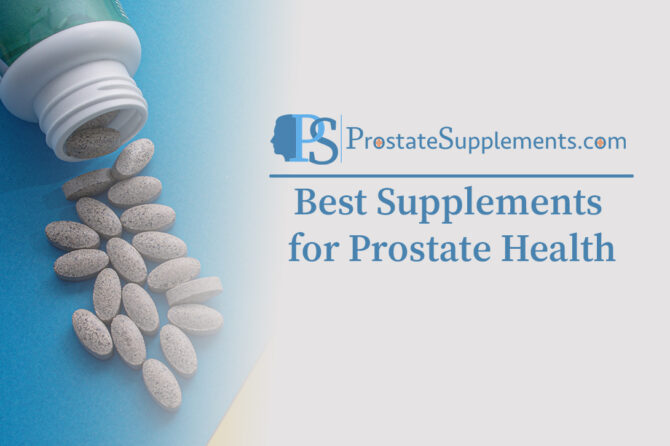
Niaouli Oil and Its Effects on Prostate Health
Abstract
Niaouli oil, derived from the leaves and young twigs of Melaleuca quinquenervia (a member of the Myrtaceae family), is an essential oil with recognized antimicrobial, anti-inflammatory, and antioxidant properties. While its traditional use spans dermatological and respiratory applications, recent interest has emerged in exploring its effects on men’s health—specifically prostate and urinary system support.
Niaouli oil is a volatile essential oil native to Australia, Papua New Guinea, and New Caledonia. The oil is steam-distilled from Melaleuca quinquenervia, a tree commonly referred to as the broad-leaved paperbark. It shares many phytochemical traits with its close relative, tea tree (Melaleuca alternifolia), though it is typically milder and better tolerated when applied topically or used in aromatherapy.
The primary constituents of Niaouli oil include:
- 1,8-Cineole (Eucalyptol) – up to 60%
- α-Pinene
- Viridiflorol
- Linalool
- Limonene
These components are central to the oil’s biological activities, particularly in relation to anti-inflammatory and immune-modulating effects that may play a role in maintaining prostate and urinary health.
2. Prostate Health: Inflammation, Hyperplasia, and Oxidative Stress
Benign Prostatic Hyperplasia (BPH) and chronic prostatitis are two of the most prevalent prostate-related disorders affecting middle-aged and older men. These conditions often involve:
- Chronic inflammation
- Hormonal imbalances (especially dihydrotestosterone, DHT)
- Oxidative stress
Traditional pharmaceutical interventions include alpha-blockers, 5-alpha-reductase inhibitors, and anti-inflammatories. However, growing attention is being given to phytotherapeutic and nutraceutical interventions that modulate inflammation, reduce oxidative stress, and support urinary function with fewer side effects.
3. Potential Effects of Niaouli Oil on Prostate Health
3.1. Anti-Inflammatory Mechanisms
The high content of 1,8-Cineole in Niaouli oil has been documented in numerous in vitro and in vivo studies to significantly reduce inflammation markers such as IL-1β, TNF-α, and COX-2. These pathways are also implicated in prostate inflammation and BPH.
Study Reference: Juergens UR et al. (2003) demonstrated that 1,8-Cineole modulates inflammatory cytokines in human monocytes.
This anti-inflammatory action suggests potential efficacy in chronic prostatitis or inflammation-induced prostate enlargement, possibly reducing pelvic discomfort, urinary obstruction, and frequency.
3.2. Antioxidant Action
Oxidative stress contributes to both DNA damage and cellular proliferation within the prostate gland. Compounds like viridiflorol and α-pinene possess moderate antioxidant properties that may neutralize reactive oxygen species (ROS) and reduce the burden of oxidative cellular stress.
Although specific studies on Niaouli oil and prostatic tissue are limited, animal models have shown antioxidant essential oils to decrease lipid peroxidation in prostate tissue, particularly under conditions of experimental BPH.
3.3. Hormonal Modulation (Hypothetical)
There is no direct evidence that Niaouli oil modulates hormonal levels like DHT. However, through its indirect anti-inflammatory and immune-balancing effects, it may influence the local hormonal milieu of the prostate, as inflammation has been shown to stimulate DHT receptor sensitivity.
4. Urinary Benefits of Niaouli Oil
Essential oils that reduce prostate inflammation often lead to improved urinary flow and decreased frequency. Niaouli oil’s ability to relax smooth muscle tissue via monoterpenes like α-pinene may have a mild antispasmodic effect on the detrusor muscle or urethral tract, potentially aiding symptoms such as:
- Urgency
- Nocturia
- Hesitancy
- Incomplete voiding
Additionally, its antimicrobial properties may reduce the bacterial load in chronic or recurrent urinary tract infections (UTIs), which are known comorbidities in chronic prostatitis cases.
5. Ingestion and Administration Methods
While Niaouli oil is generally recognized as safe (GRAS) by the FDA for external use, ingestion requires caution and professional supervision. Internal use is not recommended without consultation from a certified aromatherapist or naturopathic doctor due to the concentration and volatility of the oil.
5.1. Inhalation (Preferred Method)
- Steam inhalation: 3–5 drops in hot water for respiratory and systemic effects.
- Diffusion: Up to 30 minutes a few times daily to modulate inflammation systemically.
5.2. Topical Application
- Diluted oil massage: Dilute to 2–3% concentration with a carrier oil (e.g., jojoba, coconut).
- Apply to lower abdomen, inner thighs, or lower back where lymphatic drainage can aid prostate support.
5.3. Internal Use (Caution Advised)
- Capsulated form: Only when specifically formulated for internal use.
- Diluted oral dose: Typically 1 drop in a carrier like olive oil or honey once per day, only under supervision.
Important: Niaouli oil ingestion should not exceed safe thresholds (generally <0.05 mL/day) due to the risk of mucosal irritation and neurotoxicity.
6. Comparative Overview: Niaouli Oil vs. Other Prostate-Supporting Oils
| Oil | Key Compound | Prostate Benefits | Ingestion Safety |
|---|---|---|---|
| Niaouli | 1,8-Cineole | Anti-inflammatory, antimicrobial | Low – requires caution |
| Tea Tree | Terpinen-4-ol | Antimicrobial only | Toxic if ingested |
| Pumpkin Seed Oil | Phytosterols | Blocks DHT, improves flow | High safety |
| Saw Palmetto | Fatty acids | Inhibits 5-alpha-reductase | Well-established |
While Niaouli oil is not as directly effective on hormonal pathways as saw palmetto, its systemic anti-inflammatory and antimicrobial effects give it a unique adjunctive role in prostate care protocols.
7. Safety, Contraindications, and Toxicology
- Not suitable for children or pregnant women
- May cause skin irritation if undiluted
- Should not be used by individuals with epilepsy or severe asthma without medical advice
- Possible drug interactions with blood pressure or immunosuppressive medications due to liver enzyme activity (CYP modulation)
8. Conclusion and Future Research Directions
Niaouli oil demonstrates significant potential as a natural adjunct for supporting prostate health through its anti-inflammatory, antimicrobial, and antioxidant properties. Although direct clinical trials on prostate disorders are lacking, extrapolated data from immune and inflammatory pathways suggest a promising role, especially when used via inhalation or diluted topical routes.
Future research should investigate:
- Direct in vivo studies on prostate tissue response
- Synergistic effects with other prostate-supportive botanicals
- Long-term safety of low-dose ingestion protocols


Leave a reply